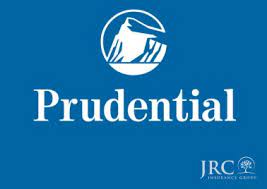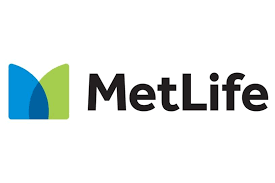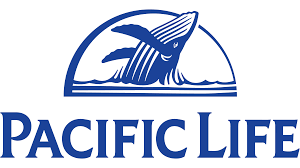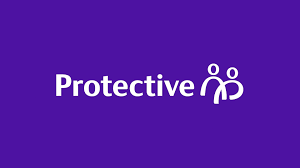Life insurance companies in Arizona
Life insurance is a contract between a policyholder and an insurance company, where the insurer guarantees to pay a sum of money to the designated beneficiaries upon the death of the insured person, in exchange for premiums paid during the policyholder’s lifetime.
Life insurance is important for several reasons. It provides financial security to your loved ones in the event of your death, helping to pay off debts, cover living expenses, and handle any medical or final expenses. It can also serve as an estate planning tool, ensuring that your heirs have sufficient cash on hand to pay any necessary estate taxes and final expenses.
The life insurance market in Arizona is highly competitive, with many longstanding insurers and newer “insurtechs” selling policies online. To help you navigate the options, we have compiled a list of Arizona’s top 10 life insurance companies based on their financial strength, customer satisfaction, and reputation in the industry.
These companies include Prudential, New York Life, Northwestern Mutual, Metropolitan, Brighthouse Financial, Banner Life, Pacific Life, Penn Mutual, Protective, and AIG. Each company offers a variety of policies to meet the needs of different customers, from seniors to millennials and even those who use recreational marijuana.
There are several types of life insurance available
**Term Life Insurance**: This type covers a specific period, typically 10, 20, or 30 years. If the policyholder dies within this term, the insurance company pays a death benefit to the beneficiaries. Term life insurance is often attractive to young people with children, as it can provide substantial coverage relatively cheaply.
**Whole Life Insurance**: Whole life insurance provides coverage for the entire lifetime of the insured person as long as the premiums are paid. It also builds cash value over time, which can be borrowed against or used to pay premiums.
**Universal Life Insurance**: Universal life insurance is a type of permanent life insurance that builds cash value. It offers more flexibility than whole life insurance, allowing policyholders to adjust their premiums and death benefits.
**Variable Life Insurance**: Variable life insurance is another type of permanent life insurance that builds cash value. It allows policyholders to invest their cash value in the insurance company’s investment portfolio, offering the potential for higher returns and more risk.
**Burial Insurance**: Also known as funeral insurance, this type of permanent life insurance covers the cost of funeral and burial expenses.
Each type of life insurance has its benefits and drawbacks, and the best choice depends on your individual needs, financial situation, and long-term goals.
Cost of Life Insurance in Arizona
The average cost of life insurance in Arizona is approximately $612 per year or about $51 per month. This rate is slightly lower than the national average of about $4 more per year. The cost of life insurance in Arizona, as in other places, is influenced by several factors, including age, health, gender, occupation, lifestyle, driving record, tobacco use, and family health history.
Age is a significant factor, with younger individuals generally receiving lower rates due to a longer life expectancy. Health status also plays a crucial role, as those with good health are likely to pay less than those with medical conditions. Gender is another determinant, with women often paying less than men for life insurance. This is because, statistically, women tend to live longer than men.
Occupation and lifestyle choices, such as tobacco use, can also impact life insurance premiums. Those with high-risk occupations or lifestyles may face higher rates. Additionally, a person’s driving record can influence costs, with a history of traffic violations potentially leading to increased premiums.
In terms of specific numbers, the average male in Arizona might pay around $20 monthly for $250K in coverage and $40 for the recommended coverage amount. Nationwide offers some of Arizona’s most affordable life insurance quotes, with an average monthly rate of $19.43 for men and $14.72 for women for a suggested coverage amount of $708,000.
It’s important to note that these are average rates, and the actual cost can vary significantly based on the individual factors mentioned above. For a more personalized estimate, individuals should obtain quotes from multiple insurers.
Life Insurance Coverage Options
Life insurance coverage options typically include term life insurance, whole life insurance, and universal life insurance. Each type has its benefits and drawbacks.
Term Life Insurance
Term life insurance provides coverage for a specific period, usually ranging from 10 to 30 years. If the insured dies during this term, a death benefit is paid to the beneficiaries.
**Benefits**:
– Affordability: Term life insurance is often the cheapest form of life insurance.
– Flexibility: It offers several payment and policy options. You can pay your premiums monthly, quarterly, semi-annually, or annually.
– Tax-free death benefit: The death benefit proceeds are tax-free, so your beneficiary can keep the total amount to use as they wish.
**Drawbacks**:
– No cash value: If you cancel, the policy doesn’t build cash value and has no surrender amount.
– Temporary coverage: It provides coverage only for a specific period.
– Requalification: You must re-qualify at the end of the term, which can be difficult if there is a significant health issue.
Whole Life Insurance
Whole life insurance provides coverage for the entire lifetime of the insured. It also has a savings component that can build cash value over the years.
**Benefits**:
– Permanency: The policy lasts for your entire lifetime.
– Predictability: In most cases, premiums are fixed for the insured’s life.
– Cash value: The policy may build up cash value, which grows tax-deferred.
**Drawbacks**:
– Higher cost: Whole life insurance is more expensive than term life insurance.
– Smaller death benefit: You will receive a lower death benefit than term life insurance.
– Lack of investment control: With a whole life policy, you don’t have control over how the cash value is invested.
Universal Life Insurance
Universal life insurance is a type of permanent life insurance that offers flexibility in premium payments and death benefits. It also allows you to build cash value through a stock market index account as you age.
**Benefits**:
– Flexibility: Universal life insurance offers flexibility, allowing you to adjust your premium and death benefit amounts as your needs change.
– Cash value growth: The policy allows you to build cash value through a stock market index account as you age.
– Tax benefits: Cash value growth is tax-deferred, implying that you aren’t obligated to pay taxes on the gains while they accumulate.
**Drawbacks**:
– Complexity: Universal life insurance is more complex than term life policies, as it involves investment risk and may require rigorous management.
– Market losses: Market losses may reduce the cash value.
– Fees: The policyholder may need to pay various fees.
Each type of life insurance has advantages and disadvantages, and the best choice depends on individual needs, financial situation, and long-term goals. It’s always recommended to consult with a financial advisor or insurance professional before deciding.
Life Insurance for Different Age Groups
Life insurance needs, and costs can vary significantly based on age. The three main age groups – young adults, middle-aged individuals, and seniors – each have unique considerations regarding life insurance.
Young Adults
Young adults, typically in their 20s and 30s, are often healthy and can secure life insurance at lower rates. For example, the average cost of term life insurance for a healthy 25-year-old is around $31 per month.
**Benefits**:
– Lower premiums: Young adults are generally healthier, leading to lower insurance premiums.
– Long-term financial planning: Life insurance can provide financial protection for dependents and cover debts like student loans.
– Business continuity: If a young adult owns a business, life insurance can help ensure business continuity in the event of their death.
**Considerations**:
– Not all young adults, especially those without dependents or significant debt, need life insurance.
– Life insurance costs increase yearly, so it’s often beneficial to lock in a rate when young and healthy.
Middle-Aged Individuals
Middle-aged individuals, typically in their 40s and 50s, often have more financial responsibilities, such as mortgages or dependents. The average cost of a 20-year term life insurance policy for a healthy 40-year-old is around $50 per month.
**Benefits**:
– Financial protection: Life insurance can provide financial protection for dependents and cover significant debts like mortgages.
– Fixed premiums: With term life insurance, premiums are fixed and won’t increase during the term.
**Considerations**:
– Premiums are higher than for young adults due to increased age and potential health issues.
– It’s essential to consider future financial needs, such as children’s college expenses or retirement planning.
Seniors
Seniors, typically those over 60, face higher life insurance costs due to increased age and potential health issues. For example, a healthy 65-year-old man might pay about $593 monthly for life insurance.
**Benefits**:
– Final expenses: Life insurance can cover final expenses, such as funeral costs.
– Legacy: Seniors can leave a financial legacy to their loved ones.
**Considerations**:
– Premiums are significantly higher due to increased age and potential health issues.
– Some insurance companies may not issue new policies to individuals over a certain age, typically around 90.
How to Apply for Life Insurance
Applying for life insurance on the Blake Insurance Group’s online quoting tool involves several steps, from determining your coverage needs to maintaining your policy. Here’s a step-by-step guide:
Step 1: Determine Your Coverage Needs
Before applying for life insurance, you need to determine how much coverage you need. This depends on several factors, including your financial dependents, outstanding debts, and everyday expenses.
Step 2: Use the Online Quoting Tool
Blake Insurance Group’s online quoting tool allows you to compare top companies. This tool is designed to be quick and thorough, providing you with a free, no-obligation quote.
To use the tool:
Click Here for Blake Insurance Group’s online life insurance quote. Engine
Fill in the required information, which typically includes your age, gender, health status, and lifestyle habits.
Review the quotes provided by the tool and compare the coverage options and costs.
Step 3: Complete the Application
You must complete the application process after choosing a policy that suits your needs. This typically involves providing more detailed information about your health and lifestyle.
Step 4: Undergo the Underwriting Process
The underwriting process involves a detailed evaluation of your application by the insurance company. This process helps the insurer determine your eligibility and premium rates.
During underwriting, you may need to:
Participate in a phone interview to discuss your health and lifestyle.
Undergo a medical exam, which may include blood or urine tests.
Wait for approval. The underwriting process typically takes 45 to 60 days to complete.
Step 5: Finalize Your Policy
Once your application is approved, you’ll receive a policy offer from the insurance company. Review the policy terms carefully before accepting the offer. Once you accept the offer, you must pay your first premium to activate your policy.
Step 6: Maintain Your Policy
After your policy is active, keeping it in good standing is essential. This typically involves paying your premiums on time and updating your policy as needed, such as changing your beneficiaries or adjusting your coverage amount. Blake Insurance Group makes paying your premiums directly with your insurance company is convenient.
Remember, honesty is crucial throughout this process. Providing inaccurate information can lead to the denial of coverage or cancellation of your policy.

Prudential
Prudential holds a significant market share in Arizona, with 6.72%. It is also recognized as one of Arizona’s best life insurance companies for seniors. Prudential is a subsidiary of a multinational financial services company specializing in providing financial services to private and institutional customers.
The company has been in business for over 140 years and has a solid financial rating from rating agencies such as A.M. Best, Moody’s, and Standard & Poor’s.

New York Life
New York Life is one of the oldest and most prominent life insurance companies in the United States. Holds a market share of 4.62% in Arizona. It is one of the largest life insurance companies in the U.S., offering a variety of life insurance policies, including term life, whole life, and universal life insurance. New York Life has a solid financial rating and has been rated A++ by A.M. Best.

Northwestern Mutual
Northwestern Mutual, with a market share of 5.84% in Arizona, is known for its long-standing presence and high client retention rate. It offers a combination of insurance and investment strategies to help clients reach their financial goals.
Northwestern Mutual has been a business mutual life insurance company for over 160 years. The company offers a variety of policies, including term life, whole life, and universal life insurance. Northwestern Mutual has a strong financial rating and has been rated A++ by A.M. Best.

Metropolitan life
Metropolitan Life Insurance Company, also known as MetLife, is a leading life insurance company in Arizona that offers a variety of policies, including term life, whole life, and universal life insurance—also a prominent player in the Arizona insurance market, offering various life insurance products. The company has a strong financial rating has been rated A+ by A.M. Best.

Brighthouse Financial
Brighthouse Financial is a newer life insurance company spun off from MetLife in 2017. is recognized for its no-medical-exam life insurance policies in Arizona. The company offers a variety of policies, including term life, whole life, and universal life insurance. Brighthouse Financial has a solid financial rating and has been rated A by A.M. Best.

Banner Life
Banner Life is a subsidiary of Legal & General America and offers a variety of policies, including term life and universal life insurance. The company has a strong financial rating and has been rated A+ by A.M. Best

Pacific Life
Pacific Life is a mutual life insurance company that has been in business for over 150 years. The company offers a variety of policies, including term life, whole life, and universal life insurance. Pacific Life has a strong financial rating and has been rated A+ by A.M. Best.

Penn Mutual
Penn Mutual is a mutual life insurance company that has been in business for over 170 years. The company offers a variety of policies, including term life, whole life, and universal life insurance. Penn Mutual has a strong financial rating and has been rated A+ by A.M. Best

Protective
Protective Life Insurance Company is a subsidiary of Dai-ichi Life Holdings and offers a variety of policies, including term life, whole life, and universal life insurance. The company has a strong financial rating and has been rated A+ by A.M. Best.

AIG
AIG is a leading life insurance company in Arizona that offers a variety of policies, including term life, whole life, and universal life insurance. The company has a strong financial rating and has been rated A by A.M. Best. AIG also offers policies for recreational marijuana use
Arizona’s top life insurance companies include Legal & General America, Prudential, Northwestern Mutual, New York Life, Brighthouse Financial, Banner Life, Protective Life Insurance, AIG, Lincoln Financial, and MassMutual. These companies have a significant presence in the state and offer a variety of life insurance policies.
Legal & General America, also known as Banner Life, is Arizona’s best overall life insurance company, offering competitive rates for people with different policy needs and health backgrounds. It also has a low complaint rating with the National Association of Insurance Commissioners (NAIC) of 0.35, below the national average of 1.00.
AIG and Lincoln Financial are known for their comprehensive life insurance offerings. Lincoln Financial is notably recognized for its policies for people with pre-existing conditions and marijuana users.
MassMutual, with a market share of 4.18% in Arizona, offers a variety of life insurance policies, including whole life insurance, and is recognized as one of the best life insurance companies for seniors in Arizona.
These companies offer a variety of life insurance policies, including term life, whole life, and universal life insurance. The choice of company and policy type would depend on the individual’s needs, financial situation, and health status. It’s recommended to compare quotes and policies from multiple companies to find the best fit.
Some life insurance companies in Arizona offer policies that do not require a medical exam. These policies are ideal for those who want to skip the medical exam or have pre-existing medical conditions. Brighthouse Financial and Banner Life are two companies that offer no-medical-exam life insurance options.
Best Life Insurance Companies for Recreational Marijuana Use in Arizona
If you use recreational marijuana, it is essential to choose a life insurance company that does not penalize you for it. AIG is the best life insurance company for recreational marijuana use in Arizona.
These companies have been selected based on their financial strength, customer satisfaction, and reputation in the industry.
Financial Strength of Life Insurance Companies in Arizona
The financial strength of a life insurance company is a crucial factor to consider when choosing a policy. It determines the company’s ability to pay out claims and meet its financial obligations. The top-rated life insurance companies in Arizona, such as Prudential, New York Life, and Northwestern Mutual, have been rated A+ or higher by rating agencies such as A.M. Best, Moody’s, and Standard & Poor’s.
Customer Satisfaction and Complaints of Life Insurance Companies in Arizona
Customer satisfaction is another crucial factor. You want a company that not only meets your needs but also provides excellent customer service. The companies on this list have consistently received high marks in customer satisfaction surveys and have fewer complaints registered against them compared to other companies.
Companies such as Brighthouse Financial and Banner Life have received high ratings for customer satisfaction and have a low number of complaints filed against them.
Frequently Asked Questions about Life Insurance in Arizona
Frequently Asked Questions
- How much does life insurance cost in Arizona?
- The average life insurance cost in Arizona is $612 per year or about $51 per month. Rates in Arizona are lower than the national average by $4 per year.
- How much per month is a $500,000 life insurance policy?
- According to data from July 2023, the average monthly premium for a healthy 35-year-old in Arizona buying a $500,000, 20-year term life insurance policy is $23.25.
- How much is $10,000 life insurance a month?
- The average cost for a 20-year term life insurance policy at $1,000,000 in Arizona is anywhere from $10.80 to $136.07 depending on your age. However, a $10,000 life insurance policy will be significantly lower.
- Is $50,000 life insurance enough?
- The amount of life insurance you need depends on your circumstances, such as your income, debts, and dependents. $50,000 may be enough for some individuals, but others may require more coverage. It's best to consult with a financial advisor to determine the appropriate amount of coverage for your needs.
- What is a good amount to pay for life insurance?
- The cost of life insurance varies based on the type of insurance, coverage amount, and personal factors. The average cost for a single policy per month ranges from $40 for a variable life policy to $55 for a universal life policy. It's essential to choose a coverage amount that meets your needs and fits within your budget.
- What age should you get life insurance?
- It's recommended to get life insurance as soon as you have dependents or financial obligations that would be impacted by your death. This could be as early as your 20s or 30s.
- Do you pay taxes on life insurance?
- Generally, life insurance death benefits are not taxable. However, the investment earnings may be taxable if the policy includes an investment component, such as whole life insurance.
- Where is the best place to get life insurance?
- There are many reputable life insurance companies in Arizona, including Nationwide, Transamerica, MassMutual, State Farm, Mutual of Omaha, and Prudential. It's important to compare quotes from multiple companies to find the best coverage and rates for your needs. You can use free online tools on Blake Insurance group website to get a free online quote.
